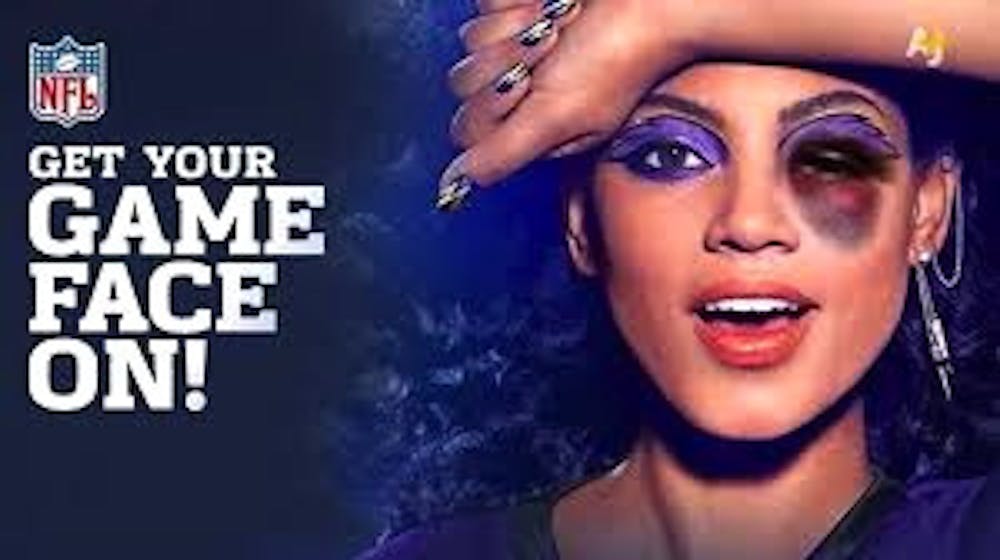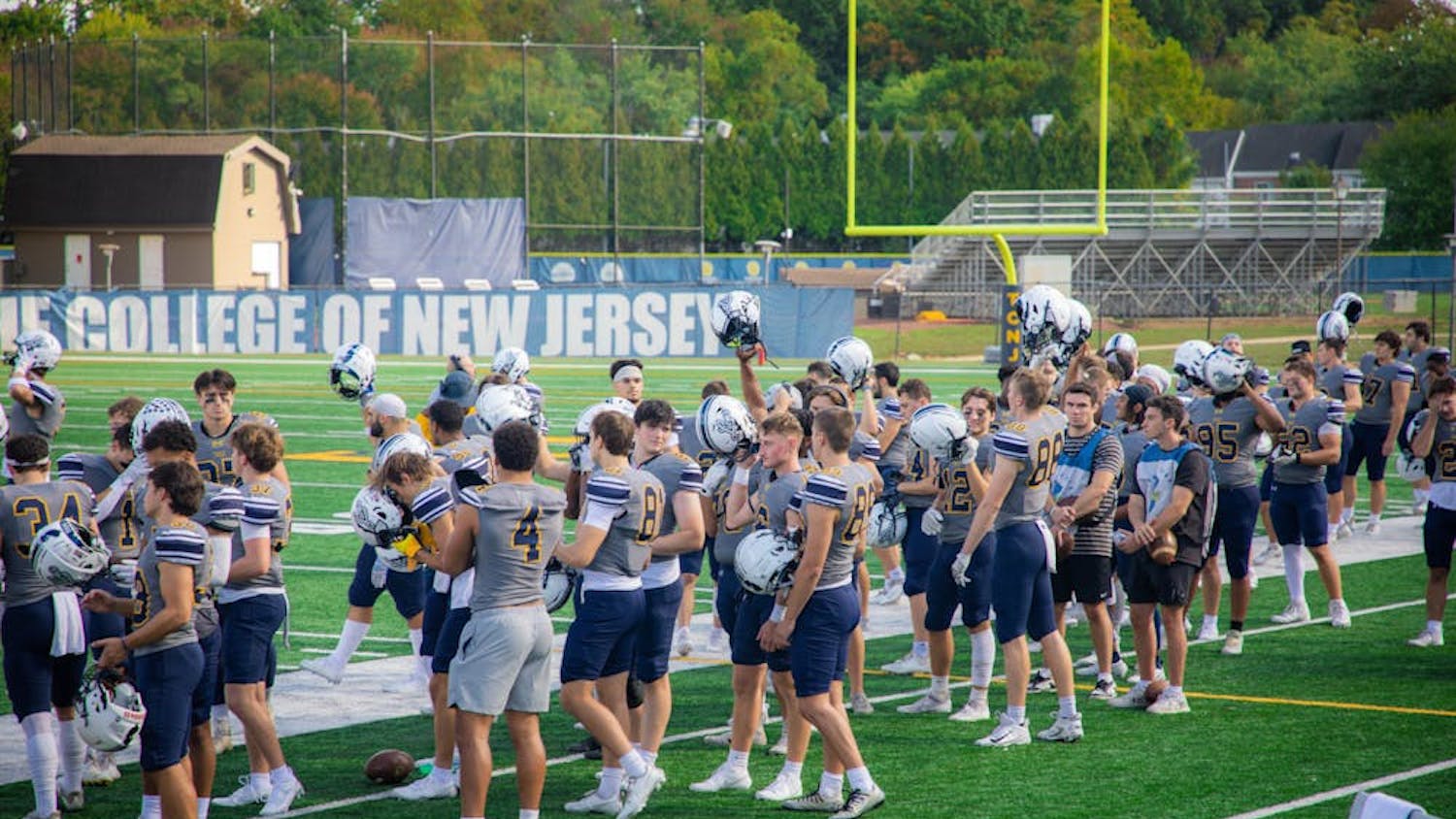By Sarah Pawlowski
Correspondent
The National Football League is a beloved organization in American society. Football has become synonymous with American culture, while it unites millions across the country in the process. Despite the camaraderie and sense of pride the NFL instills in Americans, the league has a dark side that must not go unchecked. Many of the league’s players have been accused and even convicted of domestic violence and sexual assault.
While not every player who has faced such allegations has been proven guilty, the NFL has historically rewarded a number of those who have by offering lighter penalties and ramifications than they would for other crimes. The NFL breeds and perpetuates a culture of violence in American society by too often looking the other way when its players commit domestic violence and sexual assault.
There is no shortage of players who have been accused of these crimes. The list includes top names such as Ray Rice, LeSean McCoy, Daryl Washington, Kevin Williams, Brandon Marshall and Jameis Winston.
More recently, Kansas City Chiefs player Kareem Hunt was shown on video attacking a woman and was subsequently cut by the team. Despite these players getting into serious legal trouble because of their actions, not all abusers have been removed from the league. The NFL has time and time again allowed these men to return to the field, which sends a loud and clear message –– in the league, athletic talent is much more valuable than morality and respect for others.
The National Football League began to address charges of domestic violence with increased seriousness in the wake of the Ray Rice scandal, in which the former Baltimore Ravens player was captured on video punching his fiancée Janay Palmer and dragging her out of an elevator in Atlantic City. Rice was indicted on charges of third-degree aggravated assault and suspended for two games.
In their statement, the Baltimore Ravens said, “We know there is more to Ray Rice than this one incident.” The NFL commonly uses suspension for a variety of acts, such as drug use or criminal behavior. As CNN reported, Rice also applied to and was accepted into a diversionary program for first-time offenders that would allow him to be cleared of charges in one year.
Much criticism of Rice’s punishment ensued, which led the league to reexamine its policies. The suspension penalty increased to six games for first offenses of domestic violence and other violent acts, with a lifetime ban happening at the second offense. Around this time, footage of the incident between Rice and Palmer emerged. As a result, the Ravens released Rice.
Despite the NFL’s claims that it is now treating domestic violence with increased seriousness, the opposite seems to be true. The league brought on domestic violence experts to help address this serious issue within the league, but in May 2018, two of these individuals stepped down from their roles. Deborah Epstein, one of the experts involved said, “I simply cannot continue to be part of a body that exists in name only.”
The NFL Players Association formed a commission on domestic violence in the wake of the Rice incident, but according to an opinion piece published by Epstein in The Washington Post, the NFL did not take the commission’s suggestions and findings seriously. Over the course of this past season, NFL Commissioner Roger Goodell has been noticeably absent. Goodell has been subject to public outcry for the way the league handles these issues. As The Wall Street Journal reported, the league has enjoyed higher ratings in the wake of Goodell’s absence.
Despite the league taking action to remedy these issues, its culture of violence is still rewarding offenders, as Grandstand Central reported, “A first-round pick in the 2017 draft was facing an active rape investigation. A second-round pick was caught on video punching a woman and breaking a few bones in her face.
A third- round pick was accused of viciously dragging his girlfriend across the floor, a month before the draft. A fourth-round pick was charged twice with assault against his children’s mother. A sixth-round pick was charged with beating a woman outside a bar, knocking her unconscious and knocking out a tooth, one week before the draft. Those picks were: Gareon Conley, Joe Mixon, Dede Westbrook, Jourdan Lewis and Caleb Brantley.”
According to a study done by FiveThirtyEight with data from USA Today’s NFL Arrest Database, “Domestic violence accounts for 48 percent of arrests for violent crimes among NFL players, compared to our estimated 21 percent nationally.”
There is no question that domestic violence is a significant societal issue. As more is revealed about acts of domestic violence committed by those in positions of power and prestige, the need for action becomes greater. The NFL needs its #MeToo moment sooner rather than later.

While arrests for domestic violence may seem to be a move in the right direction, an arrest does not necessarily guarantee that players will face consequences. Players may be arrested but ultimately found not guilty. In other jobs, simply being arrested may be grounds for employer action or removal.
This is not always the case in the NFL. Even those found guilty may still enjoy time on the turf. As Grandstand Central reports, “Following the public court of opinion’s ruling, post-headline press conferences filled with tears, lengthy apologies and requests for privacy take place; statements condemning players’ conduct off the field by league and team officials are published and the promises found within every press release to address the issue internally never amount to much — besides giving the public what it needed to hear.”
The Super Bowl is a time of increased awareness and conversation about the issues of domestic violence, sexual assault and human trafficking. Large events such as the Super Bowl are often used as opportunities for human traffickers to make money and move their victims. Survivors of sexual assault and domestic violence may have to see their abusers enjoying praise and rewards on national television.
Sporting events, which often involve the consumption of alcohol, can put individuals in unhealthy relationships at greater risk of domestic violence. It is imperative that the NFL remains cognizant of these realities and understand how what goes on inside the league influences our culture.
When asked if she believed in the removal of offenders from the league, sophomore psychology and women’s, gender and sexuality studies double major Gabbi Petrone said, “I just don’t see why they should continue to have a life and livelihood when they’ve destroyed someone else’s. That sends the message that domestic violence and sexual assault doesn’t matter. That the victims don’t matter.”
Athletic talent should not outweigh human decency. No domestic violence offender, however talented, should have the privilege of working for the NFL. Even more importantly, no survivor should ever have to see his or her abuser on national television. Football may be a beloved hallmark of American culture, but domestic violence is not.







